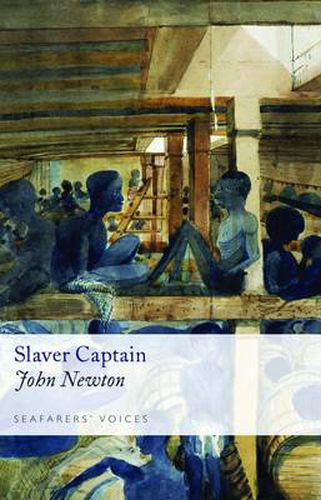Readings Newsletter
Become a Readings Member to make your shopping experience even easier.
Sign in or sign up for free!
You’re not far away from qualifying for FREE standard shipping within Australia
You’ve qualified for FREE standard shipping within Australia
The cart is loading…






John Newton is now best remembered as an Anglican clergyman and the author of the hymn Amazing Grace. For the first thirty years of his life, however, he was engrossed in the slave trade. His father planned for him to take up a position as slave master on a West Indies plantation but he was instead pressed into the Royal Navy where, after attempting to desert, he was captured and flogged round the fleet. After this humiliation he was placed in service on a slave ship bound for Sierra Leone, but there, having upset his captain and crew, he found himself the servant of the merchant’s wife, an African Duchess called Princess Peye, who abused him along with her slaves. As he wrote himself, he was ‘an infidel and libertine, a servant of slaves of West Africa.’ In 1748 he was rescued and returned home and it was on this voyage that he experienced his spiritual conversion. Though avoiding profanity, women, gambling and drinking he continued in the slave trade, taking up a position on a ship bound for the West Indies and then making three further voyages as a captain of slave ships. In 1755, after suffering a severe stroke, he turned away from seafaring and pursued a path to the priesthood, becoming the curate at Olney in 1764. His Authentic Narrative, as it was called, is a remarkable, no-holds-barred account of the African slave trade, as well as an account of his struggle between religion and the flesh.
$9.00 standard shipping within Australia
FREE standard shipping within Australia for orders over $100.00
Express & International shipping calculated at checkout
John Newton is now best remembered as an Anglican clergyman and the author of the hymn Amazing Grace. For the first thirty years of his life, however, he was engrossed in the slave trade. His father planned for him to take up a position as slave master on a West Indies plantation but he was instead pressed into the Royal Navy where, after attempting to desert, he was captured and flogged round the fleet. After this humiliation he was placed in service on a slave ship bound for Sierra Leone, but there, having upset his captain and crew, he found himself the servant of the merchant’s wife, an African Duchess called Princess Peye, who abused him along with her slaves. As he wrote himself, he was ‘an infidel and libertine, a servant of slaves of West Africa.’ In 1748 he was rescued and returned home and it was on this voyage that he experienced his spiritual conversion. Though avoiding profanity, women, gambling and drinking he continued in the slave trade, taking up a position on a ship bound for the West Indies and then making three further voyages as a captain of slave ships. In 1755, after suffering a severe stroke, he turned away from seafaring and pursued a path to the priesthood, becoming the curate at Olney in 1764. His Authentic Narrative, as it was called, is a remarkable, no-holds-barred account of the African slave trade, as well as an account of his struggle between religion and the flesh.